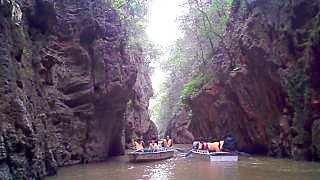A song from rock band SHIN that pays homage to Chinese Opera and has become a well known anthem. Sung here superbly by the beautiful Angela.
My translation of the key verse :
I don't care where you came from
I don't know if you'll return
But with you in my arms now
Gonna hold you
Just as long as I can
[640],shadow=true,start=,stop=Bonus film - "Nine million bicycles in BeiJing" / Love BeiJing ...
True beauty is a pure heart.
Six billion people in the world,
Love them all;
But you're the one I love most
Most of all
 One night in BeiJing – music videos (Love BeiJing, Love life!)
One night in BeiJing – music videos (Love BeiJing, Love life!)






![The first film is from the CCTV Spring Festival Gala 2013, with singer Na Ying. The song : [Because of You, My Life is] A Warm Spring With Blooming Flowers. In 2015, the Spring Festival (Chinese New Year) runs from the 19th to the 25th February. The second is from China`s National Games Opening Ceremony in 2009. The song is Like A Dream. The third film features the music `Legend of Chinese Mountains` and is about the five sacred mountains of China and the Chinese love of nature and balance with nature. Fourth is `Your Collar`, a romantic song from the imperial music of the Han Dynasty. Fifth song is `A Nation of Greatness and Courtesy` and is about the Chinese character of virtue and friendship. Greatness in Chinese thinking is virtue; all three core Chinese philosophies - Taoism, Buddhism and Confucianism - stress that strength and happiness (well-being) lies in balance, not power (dominance). The last film features music from a documentary about the DaMing Palace (DaMing Gong) of the Tang Dynasty, at the heart of the dynasty`s capital Chang`An (which means `eternal peace`). The palace area is a little north east of the city of Xi`An in ShaanXi province. A selection of traditional Chinese music and song ...](https://img.youtube.com/vi/UP5CvZlNOKI/mqdefault.jpg)










